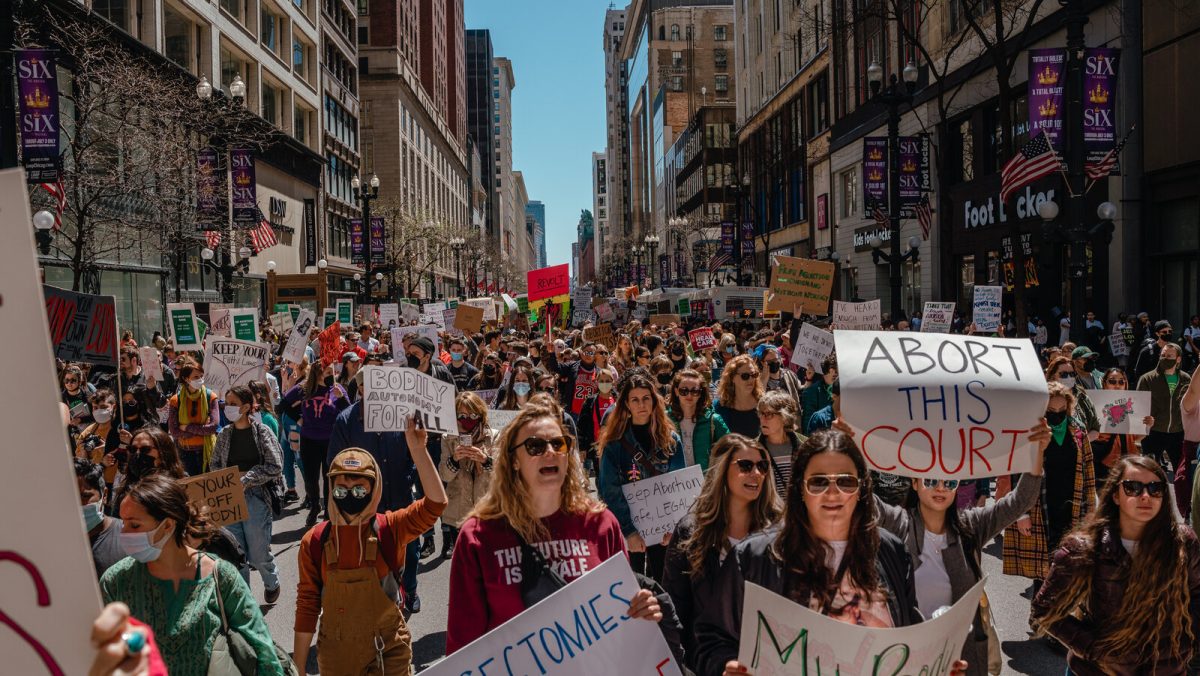There comes a time in every girl’s life when the full weight of the patriarchy hits them all at once, whether when hearing the phrase “boys will be boys” in class one day, or even in their own homes seeing the women cook during major holidays while the men sit in the living room. After the results of the 2024 presidential election, we saw this realization of the results’ potential effects on social, reproductive, and educational rights dawn on multiple women at once. With this, we saw the emergence of a movement on social media, especially on TikTok, called the 4B movement, but we have yet to consider the flaws of this movement when it relates to American society.
Originating in South Korea, the term 4B, or “four no’s,” refers to the movement’s four tenets, bisekseu, bichulsan, biyeonae, and bihon: no sex with men, no giving birth, no dating men, and no marrying men. The movement was sparked by a famous femicide case in South Korea in 2016 known as the Gangnam Station murder case, where a 34-year-old man brutally murdered a 23-year-old woman in a public bathroom in Seoul. In South Korea, one in three women have experienced gender-based violence, and every 19 hours a man kills or attempts to kill a woman he has a close relationship with. Their government, instead of addressing gender-based violence and discrimination, has invested 280 trillion won into programs that promote procreation, but have not taken any initiatives to create laws that protect women or address the cost of raising a child in the country. It currently has the lowest birthrate in the world, which the South Korean president has blamed on the 4B movement and feminism.
Some American women have seen the effect this movement has had on South Korean society and have raised the idea of growing the movement in the U.S., but there are multiple issues that people have to face with this idea. One reason is that even though the purpose of the 4B movement revolves around decentering men and freeing oneself from the detrimental effects of the patriarchy, the conversation is still heavily talking about men. It is now about getting back at men, who in some demographics voted mostly for Donald Trump, and invalidates the purpose of 4B. There have also been conversations by participants about making oneself unattractive by men’s standards by shaving the head. Not only is this redundant to the point earlier about focusing on men in a movement that says the opposite, but it is also downright insensitive to multiple groups, such as people who have struggled with hair loss associated with cancer, alopecia, etc. If you want to shave your head because you have the urge, do so, but do not do it in a way that brings down other people.
Another important reason that the movement is destined to fail in America is the fact that it does not take into account intersectionality. Cultural traditions in the United States vary widely, but one that sticks out to me when speaking about this issue is Islam, where marriage is a big part of people’s lives and is seen as the foundation for a family and society. This is why the Prophet Muhammad said, “When a man marries, he has fulfilled half of his religion.” The Qur’an emphasizes that marriage is the best way to live a virtuous life free from immorality, which is why the movement would not typically work among this demographic, as men are urged to take care of their women financially, spiritually and socially, and thus it may not resonate with the women. Due to different racial, historical, and economic contexts, the movement might not also fit Black women, who have changed social classes by utilizing two-income households and communities, which have always included black men as father figures and protectors from racial discrimination and social violence. The Black community is ingrained with Black men and the two can rarely be separated socially and economically, with major steps to racial freedom being headed by both genders, such as the Black Panther Party. The movement in America is mostly being led by younger white women on the Internet, who do not resonate with the majority of diverse populations which will tank the movement with no outside influences.
The last reason is the shaming — the shaming of young women for looking for romance in the arms of men, which of course is arguably less important, but will cause the movement to not progress further. Yes, of course, women have been spoonfed romance by society and now sometimes accept lesser treatment from their male counterparts and weaponized incompetence from even their fathers, which is unacceptable, but instead of uplifting and growing these women to learn to accept the love they deserve, the shaming of love has begun. One video I saw asked the question:
“What can you get from men that you could not get from their friendship? Is it sex? If so, why would you put sex over your rights?”
As a dreaded unfortunate romantic, the answer is unfortunately romance and the opportunity for love. By repelling the population of women who do want to get married and have children, you are repelling people who, although they would not participate in the movement, would support the premise and generate more widespread support which we need to translate into enacting social-wide change of women standing up for themselves, not only every four years but every day.




